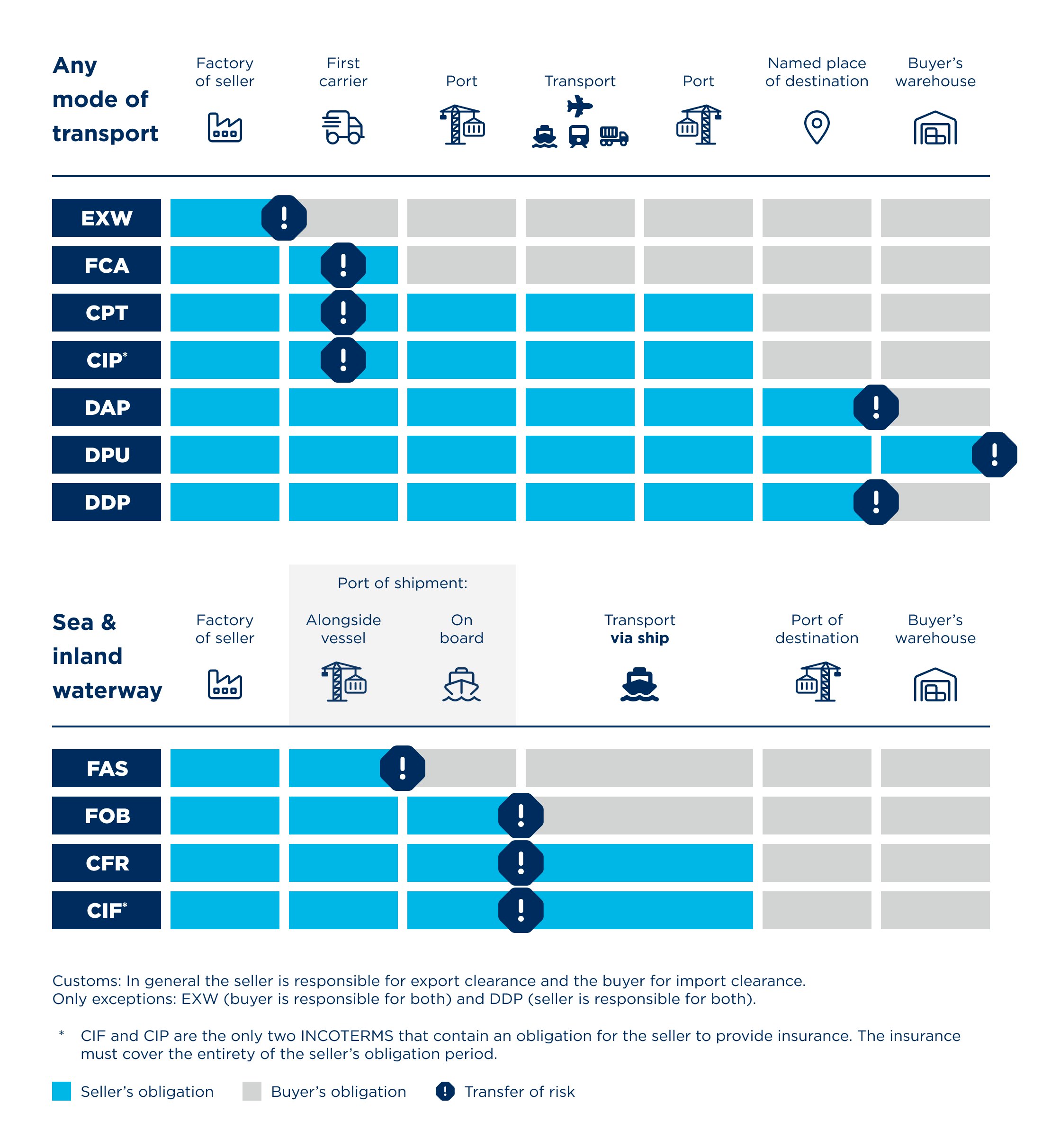The contents on this page:
The most important changes at a glance:
- The Incoterms DAT (Delivered at Terminal) clause is changed to DPU (Delivered at Place Unloaded), which means that any (agreed) location can be the destination in the future.
- Incoterms 2020 reflect the proven market demand for on-board bill of lading and the FCA (Free Carrier) Incoterms clause. Buyers and sellers can agree that the buyer instructs his carrier to issue the seller with an on-board bill of lading after loading the goods. At the same time, the seller is obliged to hand over this on-board bill of lading to the buyer. This is typically done through participating banks.
- The Incoterms 2020 adapt the insurance cover in the clauses CIF(Cost Insurance Freight) and CIP (Carriage Insurance Paid) to the current business practice. So far, the seller has taken out insurance coverage for the benefit of the buyer at a minimum level that covers a number of standard risks. Under the new rules, this minimum coverage will remain in place for CIF, while for CIP, standard insurance coverage has moved to more comprehensive all-risk coverage.
- The Incoterms 2020 in FCA, DAP, DPU and DDP take into account that more and more sellers or buyers organise the transport of the goods by their own means of transport. So far, it has consistently been assumed that the goods would be carried by a third-party supplier who was commissioned either by the buyer or the seller for this purpose (depending on which clause was used). However, it became clear that there are situations in which the buyer or the seller wants to use his own means of transport. Therefore, in the Incoterms there will in future be the possibility of either concluding a contract of carriage or simply organising the necessary transport itself.
- The Incoterms 2020 clauses take into account the ever-increasing safety requirements for the carriage of goods and will in future contain clear rules on the distribution of security obligations and the associated costs.
Source: Incoterms® 2020 by International Chamber of Commerce

The Incoterms® are a central set of rules for international trade. They do not represent a complete sales contract, but become part of the contract. All previous versions of the Incoterms® remain valid. If no year is specified, the following applies:
- The Incoterms® 2010 shall apply until 31 December 2019.
- From 1 January 2020, the Incoterms® 2020 shall apply.
Older Incoterms® may also apply, provided the relevant year is indicated.
Note: This page is for information purposes. For a detailed explanation we refer to the publication INCOTERMS® 2020 of the International Chamber of Commerce (ICC). A complete and detailed description of all rights and obligations arising from the use of the above-mentioned Incoterms® can be found in the official text of the ICC. Only the text version published by the ICC is binding!
